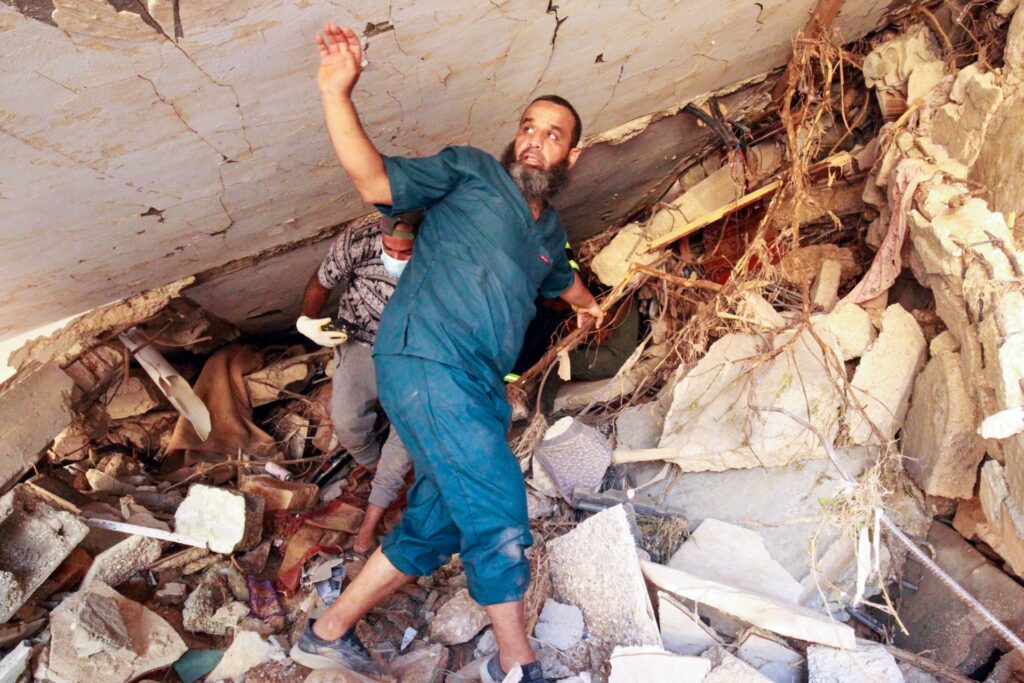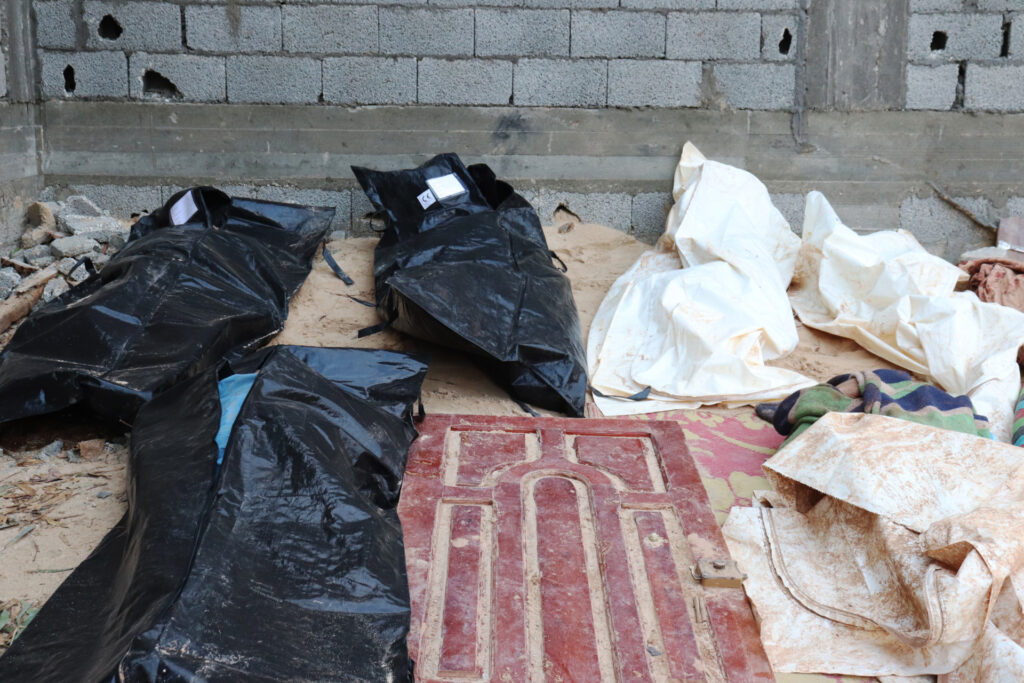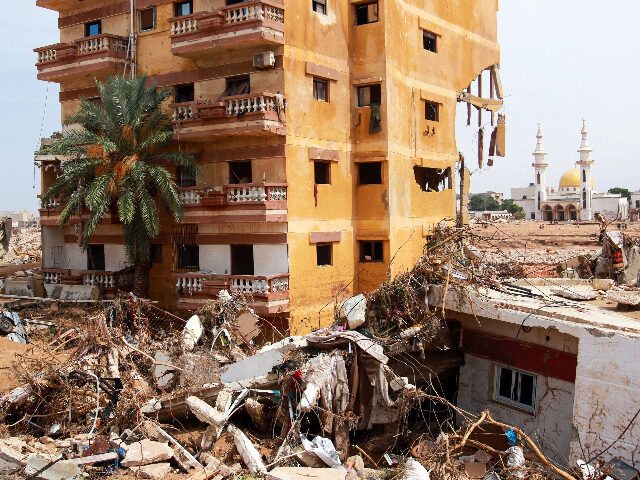World Meteorological Organization (WMO) Secretary-General Petteri Taalas said on Thursday that the horrifying casualties from the catastrophic flooding in Libya could have been mitigated with a decent early warning system — something beyond the capabilities of a country shattered by former U.S. President Barack Obama’s 2011 invasion.
“If they would have been a normally operating meteorological service, they could have issued warnings. The emergency management authorities would have been able to carry out evacuation of the people. And we could have avoided most of the human casualties,” Taalas said at a press conference in Geneva.
Taalas said the WMO had been attempting to assist Libyan authorities in repairing their weather forecasting system for quite some time, but the effort was stymied by the abysmal “security situation” in the warlord- and terrorist-infested country.
“The tragedy in Libya highlights the devastating and cascading consequences of extreme weather on fragile states and shows the need for a multi-hazard early warnings which embrace all levels of government and society,” the WMO chief said in a statement on Thursday.
WATCH: Rescuers in Libya Respond to Deadly, Massive Flooding
Video Source: Libyan Red Crescent Bayda via StoryfulHe continued:
The fragmentation of the country’s disaster management and disaster response mechanisms, as well as deteriorating infrastructure, exacerbated the enormity of the challenges. The political situation is a driver of risk, as we are seeing in many countries currently.
According to the WMO, Libya’s National Meteorological Center “is trying to function, but its ability to do so is limited” thanks to staff shortages, malfunctioning computer systems, and “major gaps in its observing systems.”
The Libyan Meteorological Center nevertheless managed to issue warnings for Mediterranean Storm Daniel about 72 hours before landfall, but the warning did not reach enough coastal residents or generate the kind of coordinated response necessary to handle such a devastating event.
“Entire neighborhoods in Derna disappeared, along with their residents swept away by water after two aging dams collapsed, making the situation catastrophic and out of control,” the WMO said, citing Libyan officials who had complained about the lack of maintenance on the dams.
Survivors said the only real warning they received of impending doom was the sound of Derna’s dams bursting. By then, it was far too late for many to escape, as they lacked transportation or disaster response plans. Entire families were swept away by flood waters or crushed by debris. People who escaped the fast-rising flood waters by climbing atop increasingly tall buildings reported hearing people in the apartments below screaming for help as they drowned.

People search in the rubble of a building in a flash flood-damaged area in Derna, Libya, on September 14, 2023. (ABDULLAH DOMA/AFP via Getty Images)
Libyan officials said on Wednesday that the death toll is now more than 6,000 people, with another 10,000 reported missing. The Libyan Red Crescent estimated a much higher death toll of 11,000. The mayor of Derna, Abdulmenam al-Ghaithi, feared the total could rise as high as 20,000.
The U.N. International Organization for Migration (IOM) said another 30,000 people had been displaced by the floods.
“The exact death toll is difficult to confirm in a country where rival governments have competed for control for a decade. Some officials say the number of deaths could double,” noted Voice of America News (VOA).
Libya’s eastern government, which supports warlord Khalifa Haftar and controls the flood-ravaged city of Derna, said more than 5,300 bodies had been counted in that city alone. The survivors suffer from severe shortages of food, drinking water, shelter, and medicine. Health officials fear the survivors will now face waves of disease from contaminated water.

People who lost their lives are covered by plastic bags after the floods caused by Storm Daniel ravaged disaster zones in Derna, Libya, on September 12, 2023. (Abdullah Mohammed Bonja/Anadolu Agency via Getty Images)
The Norwegian Refugee Council’s Middle East Media Adviser, Ahmed Bayram, told VOA the flood will be “a tragic situation for tens of thousands, not just in Derna, but also across Libya.”
“The thing about this is that Libya, with its many problems, has been off the headlines for months, if not over a year now. Now it’s back in the spotlight, and it is important to stress that Libya has been left behind,” Bayram said.
“Now it’s time for donors to get back on track and fund this emergency,” he urged.
International rescue workers and humanitarian agencies say getting assistance to Derna is extremely difficult because of damage from the floods, Libya’s terrible security environment, and government dysfunction.

COMMENTS
Please let us know if you're having issues with commenting.